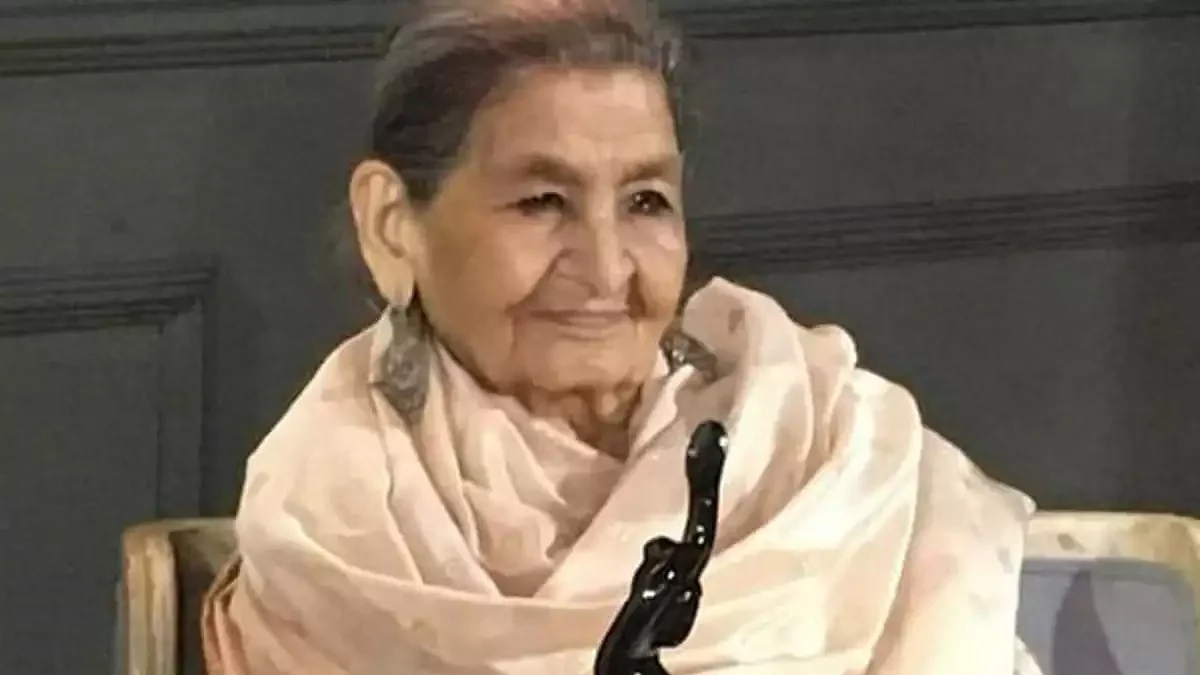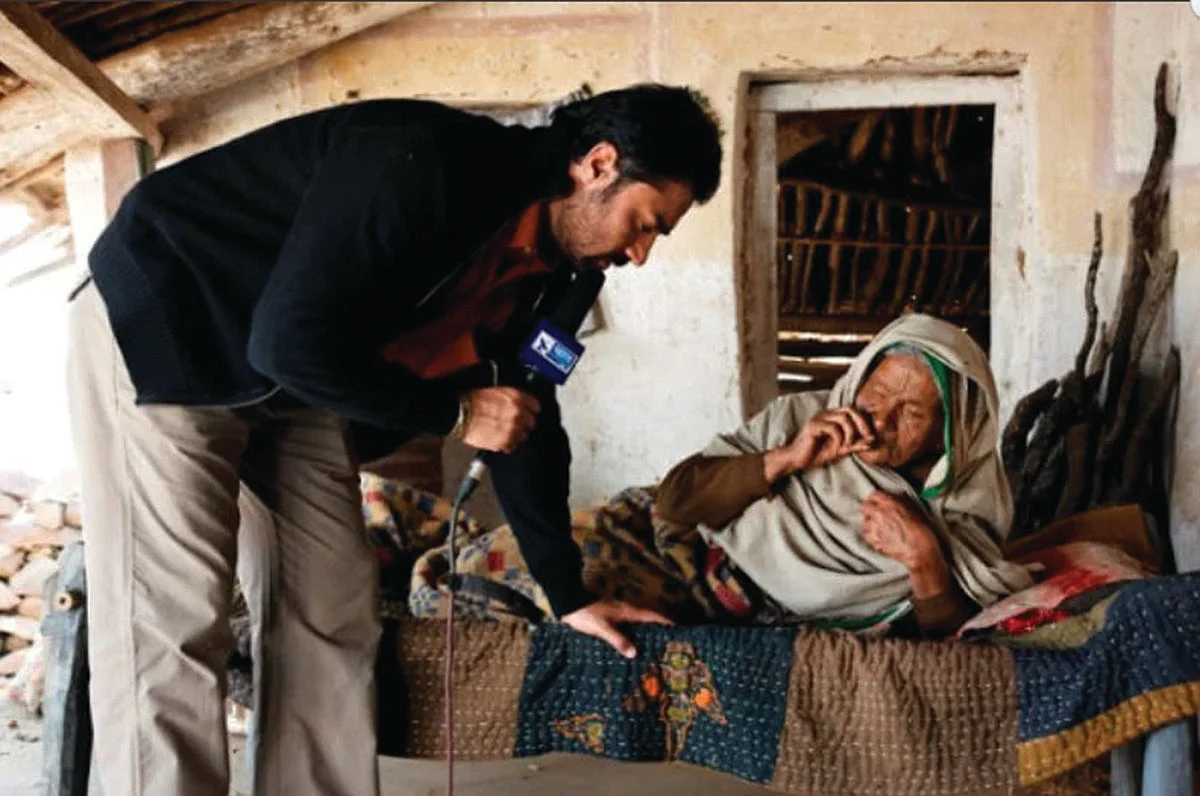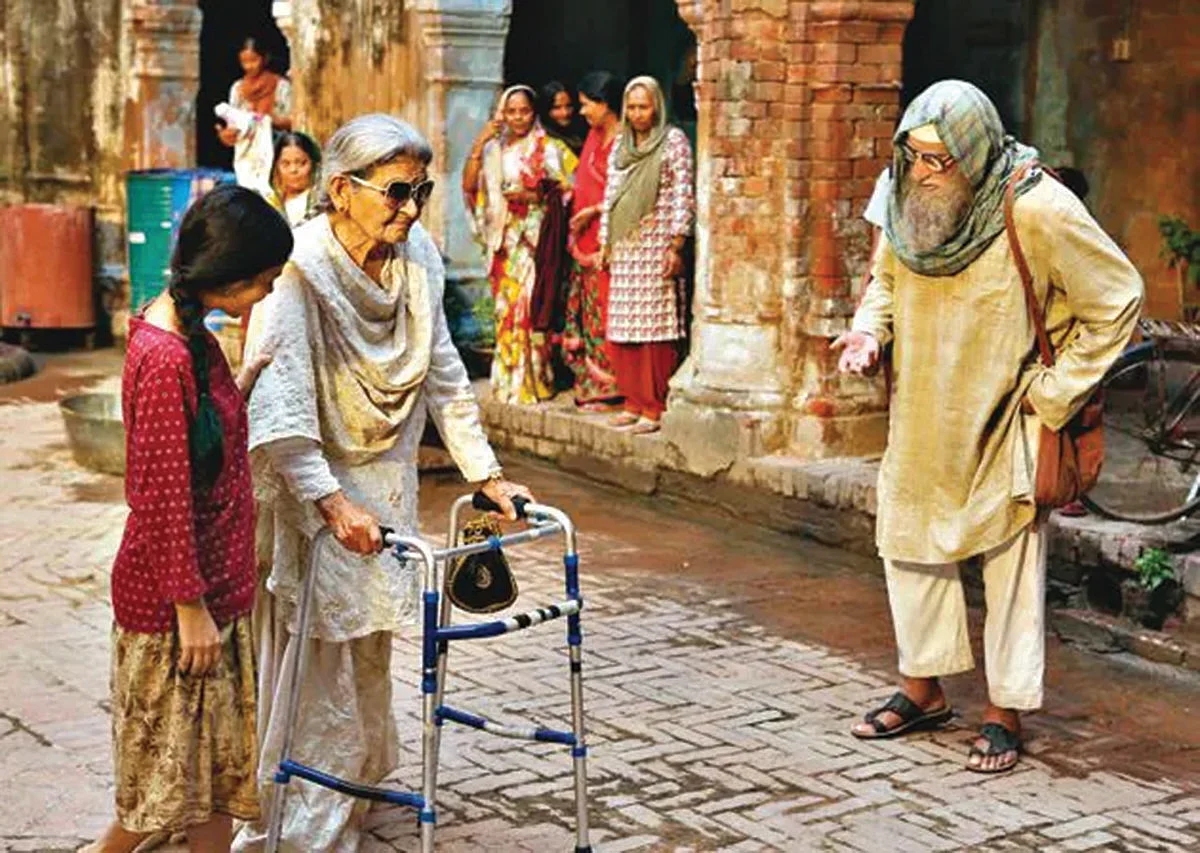Reel Life: Farrukh Jaffar- Childlike artiste who loved to be loved
Someone who had no half measures in life, Jaffar gave it her all and lived life to the hilt. She got the chance to play a titular role for the first time at age 88 in the yet to be released Mehrunisa

I first heard of Farrukh Jaffar back in 2010 in Bhadwai, on an assignment to capture the reality of the village, 70 odd km from Bhopal, in the Raisen district of Madhya Pradesh, that had transformed into the fictional Peepli in Anusha Rizvi’s Peepli [Live], a stinging satire on both the state of India’s villages as also its media.
The villagers were enjoying their first experience of being thrown into the limelight with the film promos showing on TV and songs playing on the FM channels. They couldn’t contain the excitement in recalling their close encounters with the stars, especially Raghubir Yadav, who ate and sang with them by the village pond.
And then there were these unending stories about “Amma”. “It was here that her charpai (cot) used to be laid out,” said Shahadat Khan, pointing to a spot in the little courtyard. It was Shahadat’s mud house that had filled in as protagonist Natha’s home in Peepli [Live]. Not having seen the film till then, I was a little befuddled: who is “Amma”? Little did I realise that I too would get entranced by the character of Natha’s mother, especially the aplomb with which Farrukh Jaffar played it on screen.
Crochety, quick in her retort to her daughter-in-law who she is constantly fighting with, Amma was seen stuck to her bed in the film, but still making the world spin around her. Animated and fiery Jaffar brought her own audacious self to the character, as she also did in the films that followed, right up till Gulabo Sitabo last year in which she played Fatima Begum aka Fatto, the spunky nonagenarian with a proclivity to elope.

Even her passing away on October 15 then felt like a temporary flight than a permanent departure. That like Fatto in Gulabo Sitabo she’d be back, all decked up, well in time for her birthday party. And to play Ismat Chugtai, the dream role of Jaffar which never turned real.
Peepli [Live] was the first to stir curiosity about her amongst filmgoers. It was, however, not her first film. Jaffar made her big screen debut in Muzaffar Ali’s Umrao Jaan set in her own hometown of Lucknow. She played the courtesan’s mother. In an interview with me when I visited her at her Lucknow home in 2013, she had referred to Umrao Jaan as “filmi duniya ki sair ka pehla zeena (the first step in the journey through the world of films)”.
She had just finished the shoot for Buddhadeb Dasgupta’s Anwar Ka Ajeeb Qissa with Nawazuddin Siddiqui and for Praveen Morchhale’s Barefoot to Goa, a rare film without dialogue for the loquacious woman that she was. The journey ahead took her through several films--Sultan, Photograph, Chakravyuh, Secret Superstar, Tanu Weds Manu etc—in most of which she was either young at heart or an ally of the young. In the language of the young, she was “badass”.

But it was one of her last roles in Gulabo Sitabo that turned her a household name, even bringing her a Filmfare trophy for best supporting actress, making her the oldest artiste to get it at 88. In the yet to be released Mehrunisa she got the chance to play the titular character for the first time; again at 88. Ironically, the role was of a senior citizen wanting to become an actor. Clearly, with Jaffar then age was always just a number. You could never be too young or old for anything.
Born in 1933 in Chakesar village in the Jaunpur district, Jaffer moved to Lucknow following her marriage to eminent journalist and freedom fighter Syed Muhammad Jaffar. Lucknow, the city she came to love in turn fuelled her love for films which consumed voraciously in the cinema halls. Lucknow also became her permanent home and she embodied much of its old-world charm, etiquettes and values.
She used to be an avid participant in theatre and cultural events in Lucknow University and had an immensely successful career in radio. “I landed a job at the radio station by accident, and I began to like the idea of speaking to countless people, some of whom fell in love with my voice,” she shared in an earlier interview.
***
Someone who had no half measures in life, Jaffar gave it her all and lived life to the hilt. Despite being one of the most senior artistes in the industry, she lived with a childlike curiosity and excitement till the end, never let go of the essential child in her. She had energy and vivacity way beyond her age. However, she was never out there to prove a point, just to have a good time. “I believe in having maximum fun in life despite age or the economic situation,” she told me in an interview for The Hindu last year.
Bhadwai villagers remembered her back then as their own, someone who helped turn the shoot into a community experience. The cast and crew couldn’t stop talking about her professionalism. Despite being in her 70s then, she went through the grind of an exhausting round of auditions and a workshop.
Co-actor Shalini Vatsa who played the daughter-in-law that she keeps having fights with in Peepli [Live] remembers that she never let age come in the way and extended the hand of friendship despite being much senior. Working on scenes with her was fun with improvisations to boot.
The days Vatsa would be hit by insomnia, Jaffar would tell her the stories that she had written for the radio. “I would fall asleep midway through the stories. I would tell you the next day sheepishly that, ‘Kal wali kahani to puri hi nahi hui’ and you would say ‘Kahani ko chhodo, tumhein neend aa gayi, wo hi sabse zaroori hai!’,” wrote Vatsa in a Facebook post addressed posthumously to Jaffar.
Despite her age and experience she admitted learning from Vatsa even as Vatsa identified Jaffar with qualities like strength, wisdom, humour, sensitivity and discipline: “The more I got to know you and your life, which you shared very generously, the more I admired you. I remember all of it and will always,” she wrote.
In The Hindu interview to me last year she said that she liked the idea of being loved by so many people. “The biggest high of showbiz is to be able to communicate with the whole world. I love to be loved,” she had said. That love hasn’t ceased, it lives on even. As Vatsa says with affection and respect: “She was very liberal, very progressive and secular. It is women like her who paved the way for generations of us.”
Follow us on: Facebook, Twitter, Google News, Instagram
Join our official telegram channel (@nationalherald) and stay updated with the latest headlines